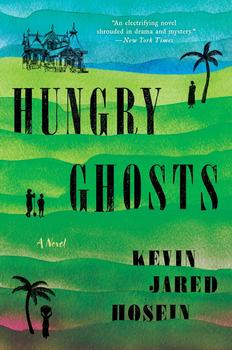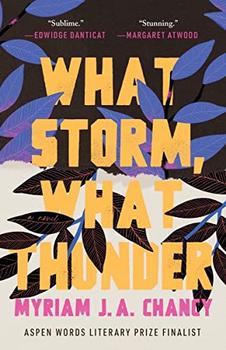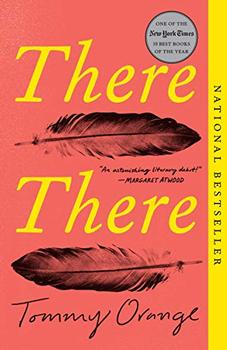Summary | Excerpt | Reviews | Beyond the book | Read-Alikes | Genres & Themes | Author Bio

A Novel
by Kevin Jared HoseinKevin Jared Hosein's Hungry Ghosts centers on the Trinidadian farm belonging to the wealthy Changoor family. As the novel opens in the 1940s, Dalton Changoor is missing, and his wife Marlee is concerned for her safety as strange happenings begin to occur around the farm. Just below the sprawling farm, life in the dilapidated workers' barracks is untenable: the roof leaks, leaving its tenants in wet, moldy, unsanitary conditions; cooking and sanitation facilities are shared; and perhaps worst of all there is no privacy among the several families that share too little space. Each family is keenly aware of the most intimate details of the other families, including the very act of intimacy itself.
One of these families is the Saroops: Hans, Shweta and their son Krishna. It is hardly a wonder that Hans feels compelled to oblige when he is called to the Changoor farm to protect Marlee until Dalton returns, particularly when Marlee tempts him with the promise of great financial gain. Yet, as Hosein makes clear from the outset, the divisions between social classes — based on religion, money and history — are indelible. If the caste system is in play in Trinidad, the barrack dwellers are clearly the untouchables, or perhaps the unseeables. There's a palpable sense of foreboding as Hans crosses the line toward a higher class and differing faith (the workers are Hindu, while members of the ruling class are Christian), as he succumbs to the temptation of a better life. The cost is beyond what he imagines, as he leaves Shweta and Krishna vulnerable to illness and violence.
The novel takes on a Darwinian feel, in the sense that those with power — the townspeople, the law enforcers, the wealthy — exert it to thwart those simply struggling to survive. Yet Darwinism implies an imperative for physical survival, and often these human predators are acting not out of necessity but rather malevolence. Hosein juxtaposes humans and animals, underscoring who the true predators are. Additionally, Shweta articulates this premise when she severs her relationship with her brother over an incident of malice and cruelty involving a stray dog. She notes that animals, unlike humans, are predictable; they let you know they are poised to strike with arched backs, bared teeth, retracted claws. She then laments that "a person could strike without warning." Hungry Ghosts is populated with humans who do just that — strike without provocation and without warning.
Hosein's characters warrant investment, as their hopes and fears strike a chord. Yet a looming cloud of violence and narcissism pervades the island, prompting the reader's urge to scream a warning to the imperiled characters or to hold their breath, hoping against the odds that somehow the goodness of humanity will prevail. Sadly, it rarely does.
Hosein is a science teacher as well as a writer, and his prose reveals his vast understanding of biology and ecology. Descriptions of flora and fauna bring Trinidad to life but also create gritty, realistic images of death and destruction. Despite its stark realism, the novel is rife with lyrical and poetic descriptions. Steeped in local color, the novel evokes an oral history of postcolonial Trinidad. As Hosein indicates in his Author's Note, he aimed to tap into Trinidad and Tobago's multicultural panorama — its "anecdotal tapestry" as well as its "ghost stories and dark domestic parables and calcified wisdoms." These wisdoms are hard-won, particularly for the Saroop family, and undeniably poignant.
Hungry Ghosts is an intriguing read that forces us to confront the harsh realities of life and its varying juxtapositions of violence and beauty, love and hate, faith and despair.
![]() This review was originally published in The BookBrowse Review in March 2023, and has been updated for the
March 2024 edition.
Click here to go to this issue.
This review was originally published in The BookBrowse Review in March 2023, and has been updated for the
March 2024 edition.
Click here to go to this issue.

If you liked Hungry Ghosts, try these:

by Myriam J. A. Chancy
Published 2022
The earth had buckled and, in that movement, all that was not in its place fell upon the earth's children, upon the blameless as well as the guilty, without discrimination.

by Tommy Orange
Published 2019
Fierce, angry, funny, heartbreaking - Tommy Orange's first novel is a wondrous and shattering portrait of an America few of us have ever seen, and it introduces a brilliant new author at the start of a major career.
Your guide toexceptional books
BookBrowse seeks out and recommends the best in contemporary fiction and nonfiction—books that not only engage and entertain but also deepen our understanding of ourselves and the world around us.